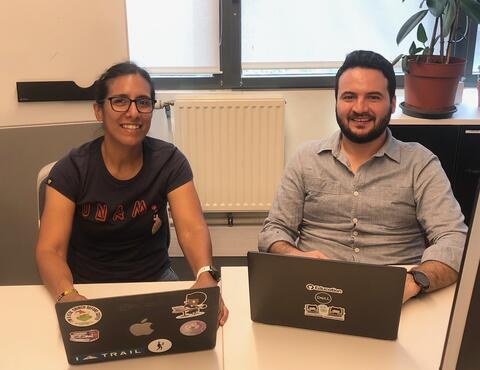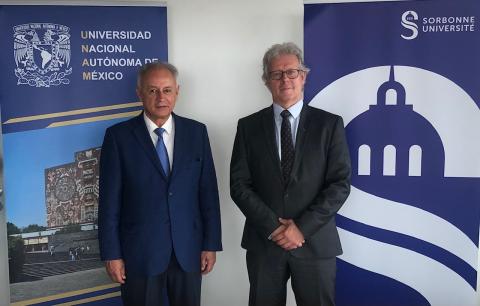
UNAM’s Helena Gomez Adorno on International Collaboration and Artificial Intelligence
Helena Gomez Adorno is a professor of Artificial Intelligence at UNAM, one of Sorbonne University’s international strategic partners. Last week, she was hosted at SCAI – the Sorbonne Center for Artificial Intelligence, to advance collaborations between our two universities in the field of AI.
Adorno sat down with us to talk about the benefits and challenges of international collaboration, the common strengths of Sorbonne University and UNAM, and her current research in Natural Language Processing (NLP), her area of expertise.
Hello, Helena. Could you present yourself?
I am a Paraguayan researcher who has been working in Mexico since 2011. I work at the Institute for Research in Applied Mathematics and Systems (IIMAS) at UNAM. My research field is natural language processing, wherein we teach machines how to understand and generate natural language.
What brings you to Sorbonne University and SCAI?
We have entered a collaboration with SCAI, which includes the organization of a joint summer school in Mexico between SCAI, IIMAS and UNAM’s engineering institute. The summer school will center on the topics of digital humanities, computational linguistics and NLP, so we’ve been discussing the program.
I have also been talking with SCAI about future joint projects, particularly in research areas that we have in common, such as mental health
What have you achieved or discovered this week?
This week, I participated in an NLP workshop that was held on campus, so I got to hear about the latest developments in my field in France, and was able to talk to members of the local research community.
It is often difficult to collaborate with international partners, because when we are abroad we are typically only able to exchange ideas for a short period, over a Zoom call, for example, or to read our respective research papers.
Opportunities like this are fantastic because we can eat together, talk freely all day… it’s really important to have these face-to-face meetings.
Why is international collaboration important?
One reason is that we face many of the same challenges in our research, and can help each other by sharing tools and knowledge. For example, over at UNAM we need to adapt common coding and AI tools from English into Spanish, whilst here at SCAI, they need to adapt them into French. So we have the same issues. Our students, too, express similar problems at both institutions, so collaboration allows them to consider new perspectives and solutions.
What are some common strengths between Sorbonne University and UNAM?
Sorbonne University and UNAM are both big universities with many students, and the careers available to graduates are similarly diverse, as we both have a real strength in multidisciplinary research.
For example, when looking at the topic of mental health, at UNAM we involve professionals in mental healthcare, computer scientists, experts from the humanities and more. This results in diverse points of view that reach better solutions with a multidisciplinary vision. It is the same at Sorbonne University.
Another example, particularly in the field of AI, is that we feed our models with the data required to learn specific patterns. If we don’t use a broad spectrum of patients—like medical research that is only conducted on males—we won’t achieve the full spectrum of learning capabilities. A multidisciplinary approach ensures a wider spectrum.
What is the biggest challenge in your current research?
The biggest challenge for me is in data labelling. In my current research, we are extracting medical terms from electronic medical records provided by the health department of Mexico City: what medications are being provided, what symptoms the patients are experiencing, etc. to help develop health policies. The problem is that this data needs to be labelled so that our AI machines and models can learn from it, but more often than not, we are dealing with raw, unlabeled data. Our biggest challenge therefore is to prepare the human-verified data to be fed to the AI.


